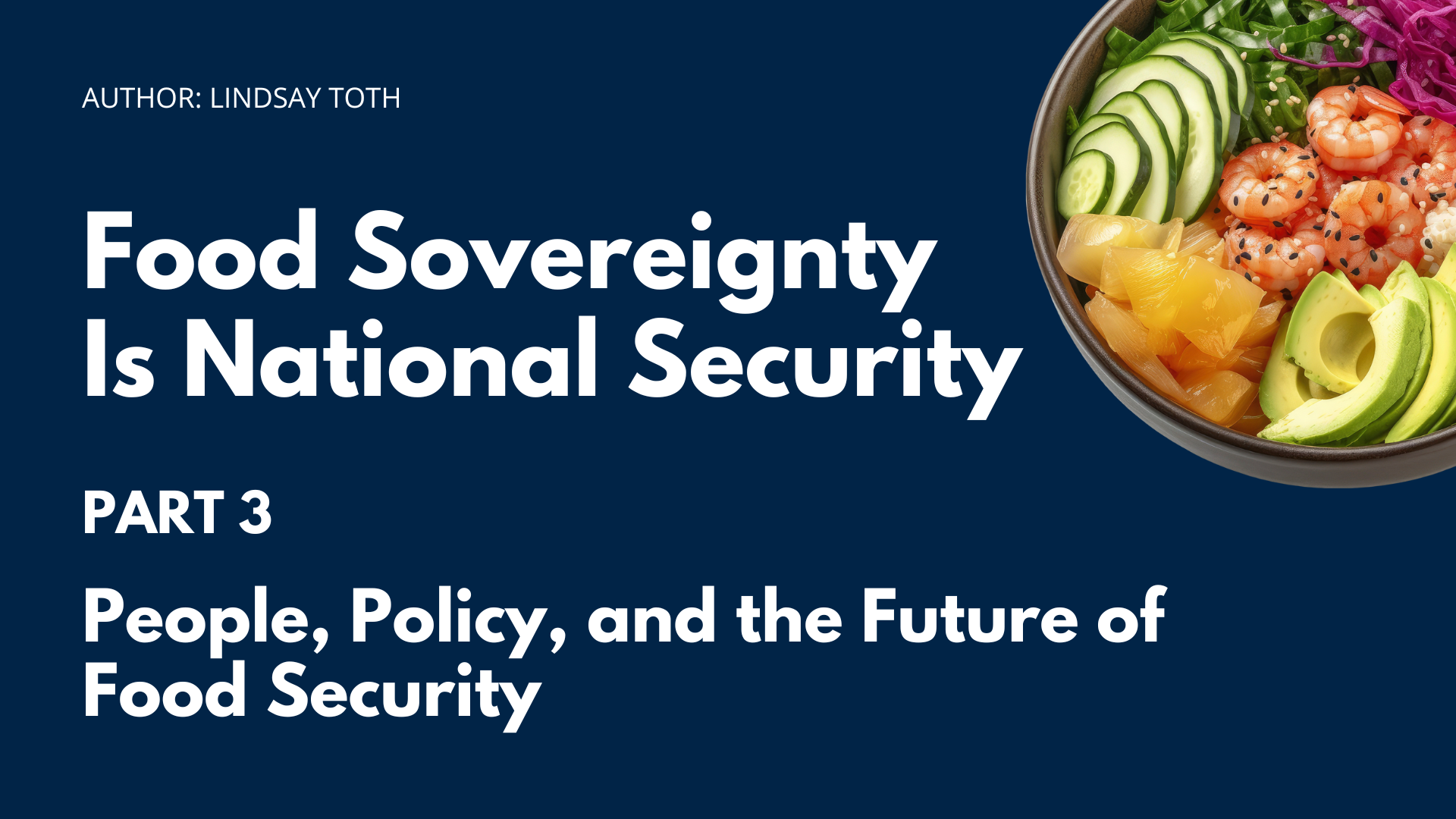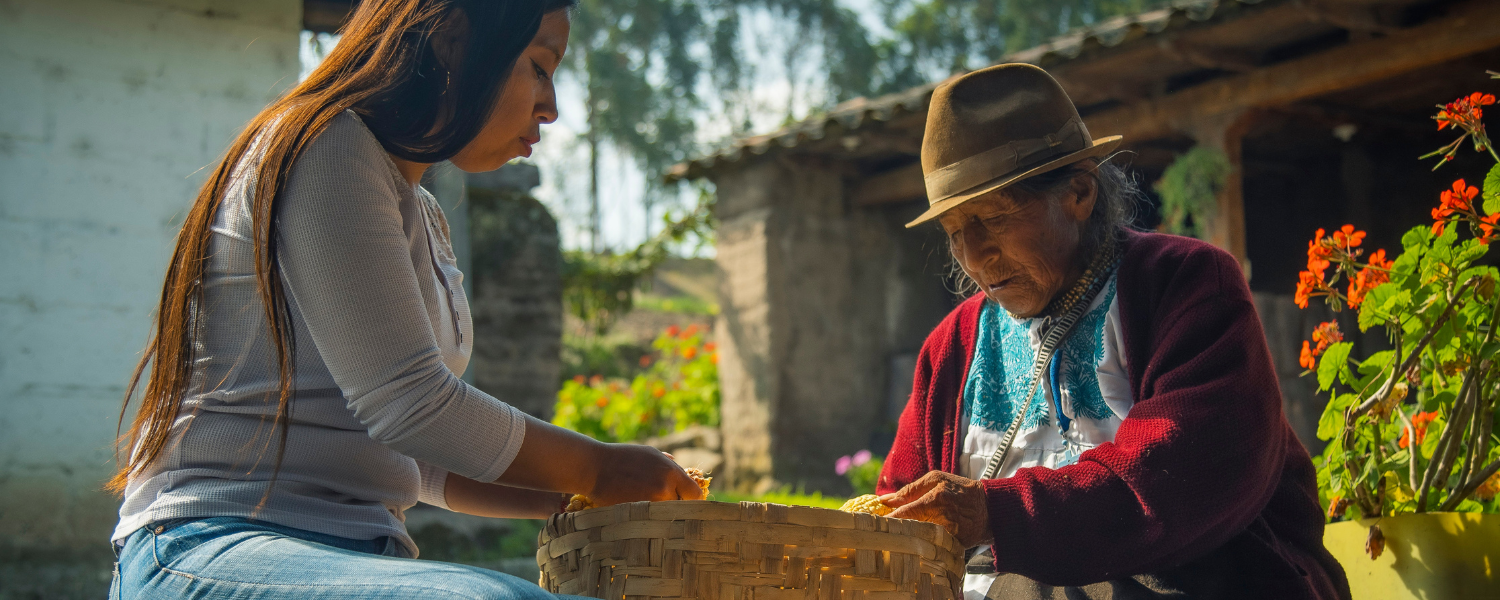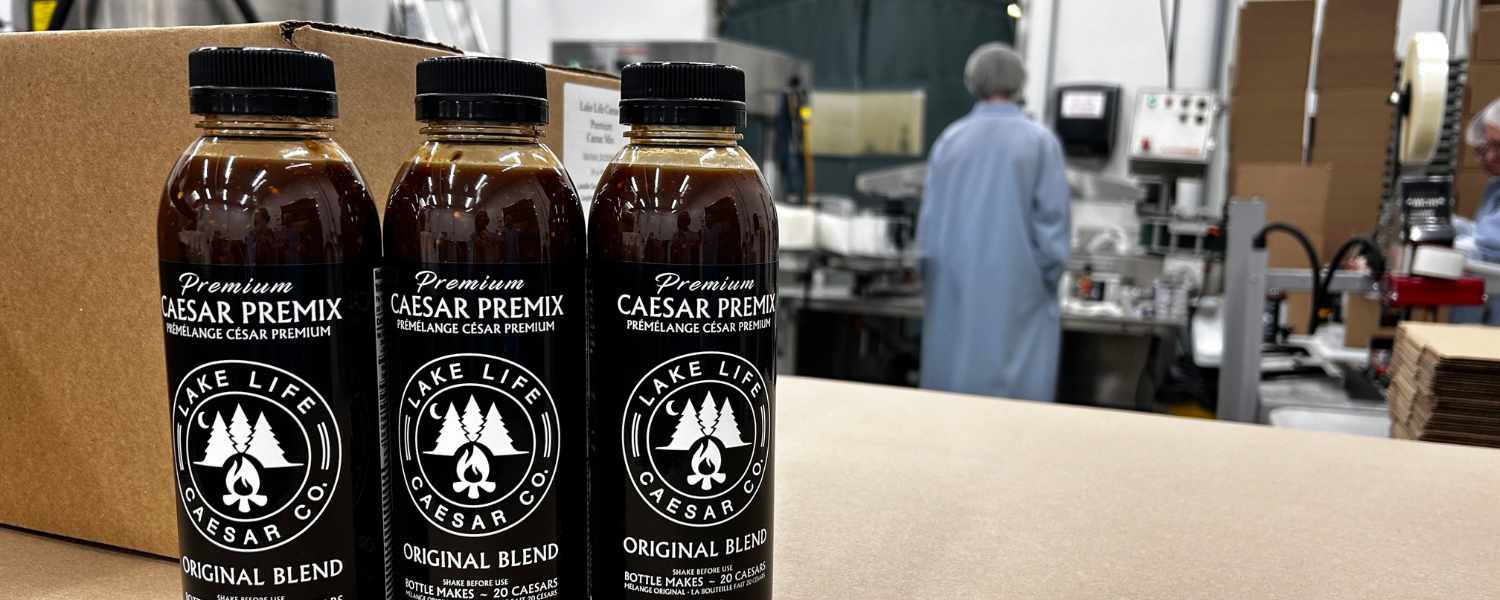Food Sovereignty Is National Security | People, Policy, and the Future of Food Security
By: Lindsay Toth
Food sovereignty is not just about agriculture. It is about people. The future of food in Canada depends on investing in the individuals who are innovating, growing, making, distributing, and fighting for access to good food in their communities.
Today’s emerging food leaders are not waiting for permission. They are building new food systems from the ground up. Indigenous food sovereignty advocates are reviving traditional harvesting practices, restoring native plant and animal species, and advancing land rights that make sustainable harvesting possible for generations to come. Women-led businesses are expanding local production and distribution networks that keep wealth circulating in their regions. Young entrepreneurs are launching food-tech ventures that connect producers directly with consumers, reduce waste, and address climate challenges head-on.
But talent and innovation cannot thrive without the right infrastructure. Canada needs more commercial kitchens, regional processing hubs, and accessible distribution networks. We also need to invest in food education and training programs that bridge the gap between traditional knowledge and modern techniques. Black, Indigenous, and racialized food founders must have access to culturally relevant programming, affordable land, and financial tools that close the opportunity gap.
Indigenous food sovereignty deserves special attention and sustained investment. These food systems are deeply connected to land, water, and cultural traditions, offering proven models of sustainability that protect biodiversity and strengthen food resilience. Supporting Indigenous-led programs is both an act of reconciliation and a strategic move for national security.
Food is economic development, climate action, health care, and community empowerment all in one. Yet too many food entrepreneurs are forced to navigate a confusing patchwork of regulations and inconsistent support programs that do not reflect the complexity of the food system or the diversity of its builders. Without targeted and consistent investment, innovation stalls and communities lose the ability to control their own food future.
A secure food future requires national investment in the next generation of food leaders. That means providing capital, mentorship, research opportunities, and place-based solutions. It means shifting from extractive models to regenerative ones that prioritize ecological health. And it means recognizing that those closest to the problem often hold the most effective solutions.
Food is not simply a commodity. It is a connector, a teacher, and a form of resilience. When we build food systems that nourish people, ecosystems, and economies, we create something much stronger than a supply chain. We create sovereignty. And that makes all of us more secure.






